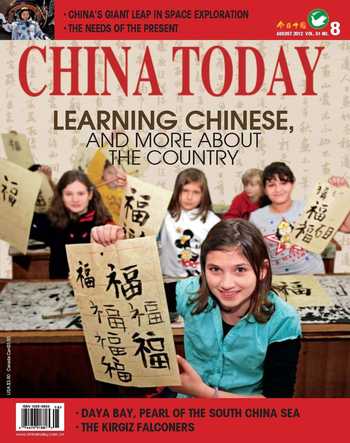Figures
RMB 2 Billion
China plans to set up a national arts fund to support artistic creation. An outline for the fund has been presented to the Ministry of Finance and will be reviewed and approved by the State Council, Chinas cabinet. For the moment the ministry has agreed to allocate RMB 2 billion to the fund for the period 2011-2015 from revenues generated by the countrys Welfare Lottery. A further RMB 1.25 billion from lottery sales will be spent on equipment for cultural centers in urban communities.
2.5 Percent
Global energy consumption grew by 2.5 percent in 2011, broadly in line with the historical average but well below the 5.1 percent in 2010, according to British oil giant BPs Statistical Review of World Energy 2012. Emerging economies once again account for all net growth. Chief economist at BP Christof H. Rühl attributes the decline in use of major energy sources in developed countries to high oil prices, the Fukushima nuclear power plant disaster in Japan and warmer weather in Europe. Global oil consumption grew by a below-average 0.7 percent, while coal, in both production and consumption, represented the strongest growth among fossil fuels – global output increased by 6.1 percent, well above the decade-long average of 4.9 percent. Much of the gain came from China (+ 8.8 percent), who churned out the equivalent of 1.956 billion tons of oil last year.
RMB 1 to 2 Billion
Starting this year, China will earmark RMB 1 to 2 billion annually towards galvanizing the new-energy auto industry. Fostering the development of new-energy vehicles will be a key part of Chinas efforts to curb energy use and emissions in the latter half of this year, Vice Finance Minster Zhang Shaochun said in a statement on the Ministry of Finance website. Government departments, logistics operators and car rental firms will be encouraged to use green vehicles. At present 25 pilot cities around China, including Beijing, are spearheading this new-energy car drive. The vice minister suggested that, to encourage purchase of green cars, the cities exempt purchasers of newenergy vehicles from restrictions on the issue of license plates and limits on the use of cars on certain days. But industry insiders caution that misgivings about new-energy cars still prevail among consumers, who are hesitant to place orders owing to scarcity of battery charging facilities as well as safety concerns.

